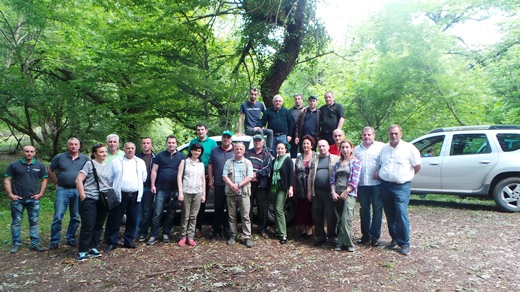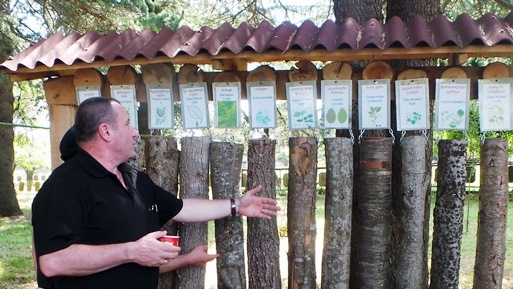Armenia and Georgia went through similar economic hardship in the 90-s of the 20th century, experiencing drastic shortage in energy supply, as well as the period of poor governance and enforcement during the difficult transition to market-driven economy. Forests in both countries suffered from uncontrolled forest harvesting, which included extraction of fire wood for survival as well as illegal harvesting of timber. Sustainable supply of fire wood to rural communities, preventing forest damage from uncontrolled grazing, ensuring long-term sustainability of timber production, and restoration of degraded forest stands remain pressing problems for Armenia and Georgia. This is why FLEG Program supported foresters and forest managers of these two countries in working out common approaches to issues and exchanging success stories for their replication and scaling.
A familiarization site visit organized by the NFA of Georgia was a unique opportunity for the forestry practitioners of both countries to visualize forest protection and harvesting techniques on the spot and to talk about issues of concern, emerging questions, and gained experience.

Representatives of GIZ-supported project in support to forest management in Georgia joined participants of the field trip at Magraani forest enterprise and discussed a few areas of intervention where the activities ongoing with the support of the FLEG Program and the German Government may benefit from sharing methodological approaches and data.
The bilateral cooperation established in the framework of round table discussions held in the two countries was an important milestone towards producing a planned Memorandum of Collaboration. The Memorandum is being drafted in hope that it will provide a convenient context for Georgia and Armenia to join their efforts aimed at better protection and management of forests. “Parties stated that the Memorandum should not only provide a general context for formal cooperation, but serve as a practical tool for joint work of practitioners for forest sector. Towards this end, colleagues from the two countries agreed that the Memorandum will cover shared use of forest databases, development of unified systems of warning on forest fires and disease, and improvement of trans-boundary protection of forests”, explained Darejan Kapanadze, World Bank Senior Environmental Specialist. “This would indeed benefit both sides,” added she, “because neither ecosystems in general, not forest pests or calamities like fire respect state borders. There are challenges that call for joint response and the FLEG Program may be a good vehicle for developing synergy between the countries covered by this Program.”

